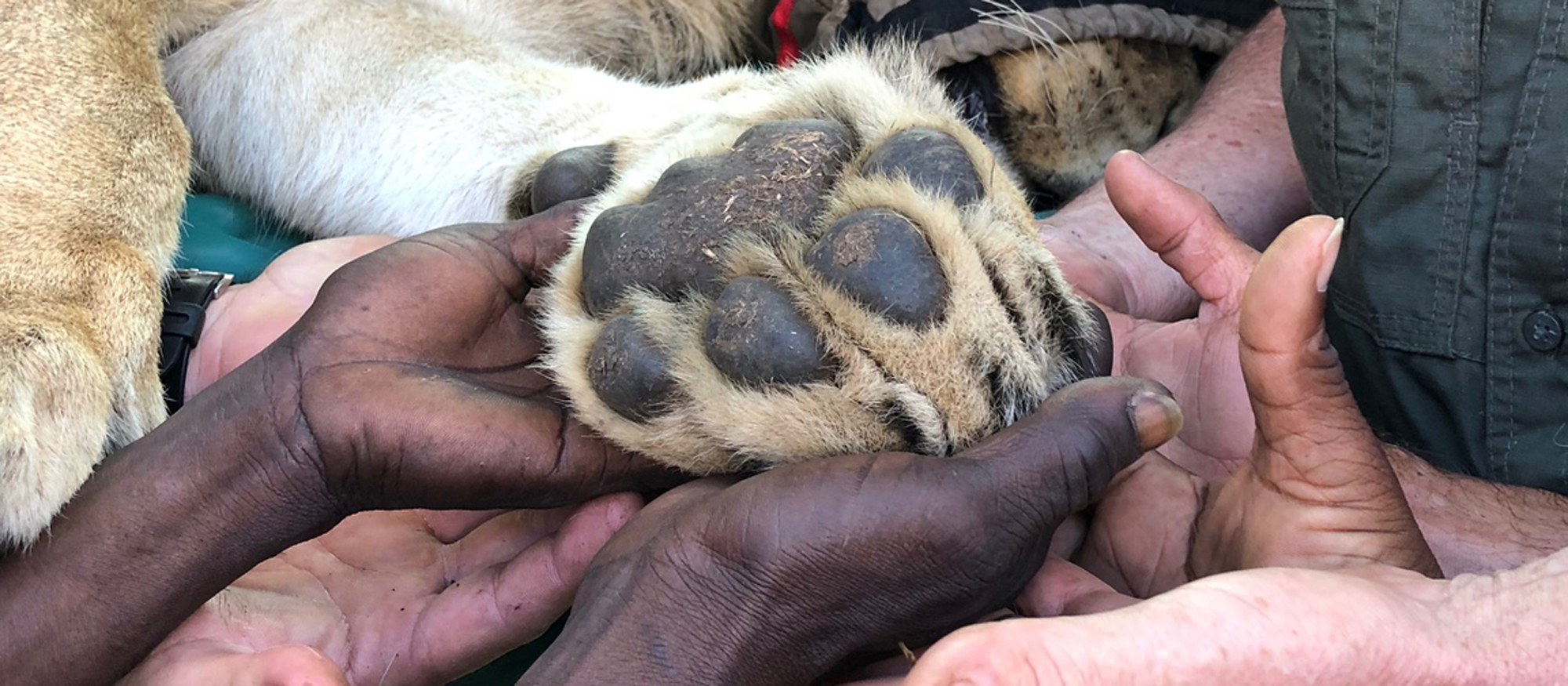Q: What is Twenty Four Lions?
A: Twenty Four Lions is the largest move of lions across an international border in history and aims to completely restore and repopulate the area’s natural ecosystem, adding 2.5 M acres to wild lions’ habitats. This historic conservation project from the Cabela Family Foundation, Ivan Carter Wildlife Alliance and Zambeze Delta Safaris transplants 24 wild lions donated from carefully selected game reserves around South Africa into a 4,500 square kilometer Zambeze Delta area of Mozambique called Coutada 10 and Coutada 11.
Q: Why is this significant?
A: More than 200,000 wild lions lived in Africa 100 years ago. Leading researchers estimate that today there are just 20,000 at most. Lions are now extinct in 26 African countries. As the largest-known effort of its kind, Twenty Four Lions is making a substantial investment in the Zambeze Delta area building on decades of work from Zambeze Delta Conservation & Anti-Poaching funded by hunting revenues, whose lion population has been reduced due to poaching during civil war as well as other biological barriers
Q: Why Mozambique on the Zambeze Delta?
A: Predators have landscape-level impacts on the ecosystem. Better understanding these processes is key to holistic management and long-term conservation initiatives. In the Zambeze Delta of Mozambique, Twenty Four Lions partners were presented with the unique opportunity to study and restore a large and diverse ecosystem before and after the introduction of lions — an “apex” or primary predator.
Q: How are lions important to Africa’s natural ecosystem?
A: Lions are under threat as suitable habitat decreases and human pressure from development, poaching and the bone trade increases. While Mozambique’s wildlife was decimated by the country’s civil war and subsequent poaching in the last 20 years, this ecosystem, in particular, has made a remarkable recovery—except for its lions. Research has shown that a void of primary or “apex” predators results in a range of problems, including collapses of entire biomes, which often have substantial ecological and economic consequences.
Q: Why will the lion population recover from this effort when it hasn’t yet occurred naturally?
A: Ungulate (hoofed mammal) populations in the ∼4,500 km2 Zambezi Delta have since recovered to pre-war levels, human occupancy levels within the area are relatively low, and the anti-poaching effort is well-organized and growing. As an example, the buffalo population in the Zambezi Delta has increased from 1,000 to 20,000 in 1994 and where there were 44 sable in Coutada 11, now are more than 3,000.
For lions, a large area, adequate prey, low human density and active protection are the key factors for a viable, free-range wild population. Lions were once abundant in the Zambezi Delta. The habitat in this same area has changed relatively little in the intervening years.
Q: What is the expertise behind Twenty Four Lions?
A: The scientific, ecological research is being conducted by experts who include Byron du Preez (Rhodes University, University of Oxford), a zoologist with over a decade of experience in researching lions and their impact on the ecosystem, and Carlos Bento (Eduardo Mondlane University, University of Cape Town). The Twenty Four Lions team also includes Dr. Sam Bila, head of the Mozambique veterinary department and a lecturer at the Maputo University.
Q: What effect has/will this had on the local community?
A: The Coutada 11 community led by Chief Tozo is a critical partner for Twenty Four Lions. Over the last two decades, this community has come to value living wildlife.Without civic engagement and education, sustainable conservation cannot occur. Throughout this process, the local communities were made aware of the lion reintroduction plans so that their concerns and suggestions could be implemented, where possible. Those communities that wanted to move closer to the school and clinic were provided free transportation. Additionally, a portion of bed nights (a community tax) goes back to the local community to sponsor projects like the local school, maize mills and agricultural projects. Anti-poaching has been stepped up to ensure our lions are safe which in turn has meant more jobs. Zambeze Delta Safaris employs and trains their staff from the local community. Additionally, the meat yielded from hunting (over 30 tons in 2017) has kept the locals well-fed, mostly eliminating the need for subsistence poaching.
Q: Will the 24 lions be hunted?
A: Absolutely not. The 24 lions are being brought in to re-establish the ecosystem in the area and they will be never be hunted. Furthermore, the lions will be monitored through a system of satellite-linked collars. Movement and behavior will also be measured from the analysis of the tracking data from these collars as well as on a sampling of other species in the area.
Q: What process was involved in capturing, transporting and releasing the lions safely and humanely?
A: We carefully identified the best South African lion populations for the reintroduction; all specific conservation-based criteria dictated they be free-range wild lions that had never been in captivity, as well as that they be genetically diverse but of the same subspecies that naturally occurs in Mozambique.
Lions in their livestock enclosures at Msunduze River Lodge were placed under quarantine and met the strictest animal welfare and security standards. They were inspected and certified by the local wildlife authority.
Each of the properties contributing animals provided formal permission for the gifting of lions. Regional export and import permits from those areas were acquired.
Once legal requirements were satisfied, lions were professionally captured by an experienced veterinary team. The professionals screened each lion for disease and supervised their transport to the quarantine livestock enclosures.
Different lion groups were carefully integrated during the quarantine period to form larger social units that could be released together. Larger prides are generally more successful at hunting and recolonization of new areas.
Finally, aircraft were reserved to transport the lions to the release site in Mozambique.
Q: How can individuals and companies get involved?
A: The Cabela Family Foundation, along with its partners, is committed to supporting the project for its duration —at least six years — as well as challenging individual and corporate donors to support an anti-poaching fund specific to Mozambique. More information—including research and videos, as well as a link to donate—can be found at www.24lions.org and @TwentyFourLions on social media. Individuals are encouraged to donate and share broadly.
Q: What’s next for Twenty Four Lions?
A: The Cabela Family Foundation has made a commitment to an additional six years of research and development for the Twenty Four Lions project. Post-release monitoring will continue indefinitely, based on satellite tracking via biotelemetry collars, so that tagged lions may be remotely located at all times. As subadults mature and the social groups expand as cubs are born, more lions will be collared. Additionally, specialized computer programs will analyze data in real-time to identify predator kill-sites, inter- and intra- specific interaction, as well as distress and mortality signals, among others.
Q: Who is the Cabela Family?
A: Dick and Mary Cabela founded the outdoor retailer Cabela’s in 1961, based on their shared love of the outdoors and deep faith that gave meaning to their outdoor adventures. They created the Cabela Family Foundation to ensure their mission would have a lasting impact for future generations. Following Dick Cabela’s 2014 passing, the family continued his legacy by supporting long-term, high-impact partnerships that fulfill the foundation’s mission. These projects promote conservation, access to wild spaces and charity toward others. www.cabelafamilyfoundation.org
Q: Why did they choose to support the Twenty Four Lions effort?
A: The Cabela family has expressed a deep connection to the African wilderness and to its lions, in particular. In accordance with the Foundation’s mission “to build and create partnerships and projects which promote outdoor recreation, conservation and charity toward others,” Twenty Four Lions presented an opportunity they were eager to support. The family saw the chance to make a big difference by funding pre-move preparations, supporting and personally overseeing the transports and release and committing funds for tracking and research at least six more years.
Q: What other philanthropies does the Cabela Family Foundation support?
A: The Foundation supports several organizations across the nation and the world, including Regis University, St. Anthony Health Foundation, National Boy Scouts of America Foundation, Kids Outdoor Zone, Turning Point USA, as well as various Catholic churches in Colorado and Nebraska. One of their specially funded initiatives includes the Dick and Mary Cabela Sustainable Use Area: A spot at the Philmont Scout Ranch within Cimarroncita Ranch in New Mexico where today's scouts are inspired to become tomorrow's dedicated outdoor enthusiasts by giving them unforgettable, first-hand experiences of the integral role they play in conservation.
Q: HOW CAN INDIVIDUALS AND COMPANIES GET INVOLVED?
A: The Foundation supports several organizations across the nation and the world, including Regis University, St. Anthony Health Foundation, National Boy Scouts of America Foundation, National Rifle Association, Kids Outdoor Zone, Turning Point USA, as well as various Catholic churches in Colorado and Nebraska.


